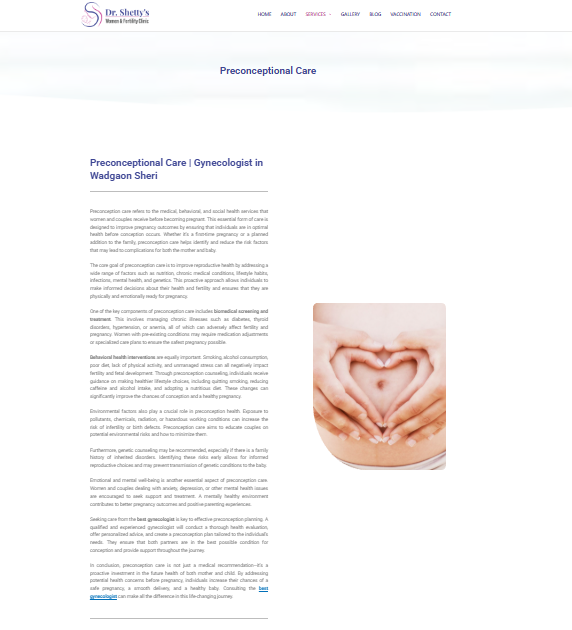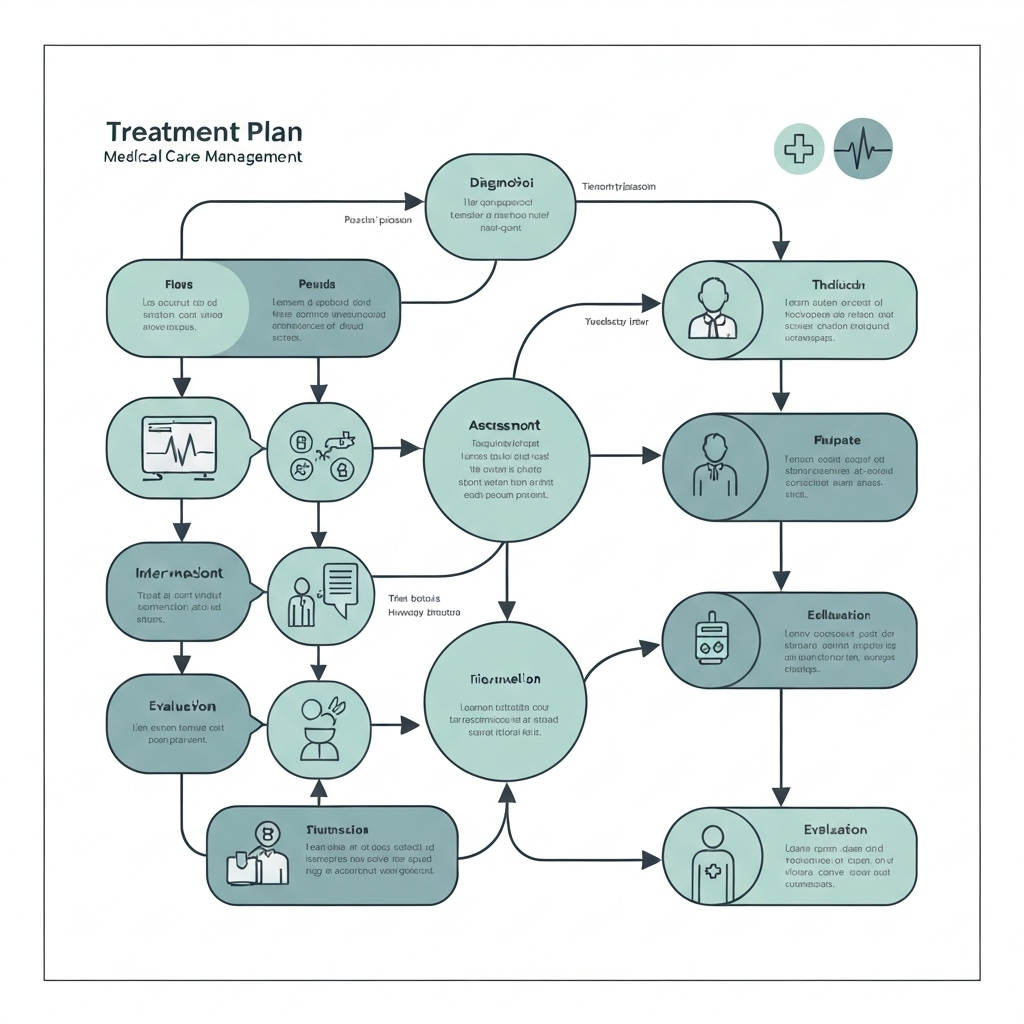Contraception Advice
Expert care and guidance from Dr. Meenal Warade, your trusted gynecologist.

About Contraception Advice
Contraception advice involves providing comprehensive, evidence-based guidance to help women and couples make informed decisions about family planning and reproductive health. At Mai Mother Care, Dr. Meenal Warade offers personalized contraceptive counseling that combines both relational and task-oriented communication to ensure patients receive individualized care that meets their unique needs, preferences, health conditions, and life circumstances.
Effective contraceptive counseling extends far beyond simply providing information about different contraceptive methods. It involves building trust and rapport, understanding individual circumstances, cultural considerations, and personal values, while supporting patients in making informed choices that align with their lifestyle, reproductive goals, and health status. This comprehensive approach helps prevent unintended pregnancies, promotes better reproductive health outcomes, and empowers women to take control of their fertility.
Our contraceptive counseling services include detailed discussions about all available methods, their effectiveness rates, benefits, potential side effects, proper usage instructions, and long-term implications. We provide ongoing support, follow-up care, and method switching guidance to ensure optimal contraceptive success and patient satisfaction throughout different life stages and changing circumstances.

Expert Consultation
Personalized care with comprehensive evaluation and treatment planning.

Advanced Technology
State-of-the-art equipment for accurate diagnosis and effective treatment.
Common Causes & Risk Factors
The need for comprehensive contraceptive advice arises from various complex factors and evolving life circumstances that influence reproductive health decisions. Women and couples may seek professional guidance when starting their reproductive years, transitioning between different life stages, after childbirth, during breastfeeding periods, when experiencing changes in relationship status, or when facing new health conditions that may affect contraceptive choices.
Multiple interconnected factors influence contraceptive needs and decision-making processes. Age-related considerations include adolescent contraceptive needs, reproductive prime years, and perimenopausal transitions. Health status factors such as diabetes, hypertension, cardiovascular disease, blood clotting disorders, liver disease, breast cancer history, or migraine headaches may significantly affect which contraceptive methods are medically appropriate and safe for individual patients.
Lifestyle factors play crucial roles in contraceptive selection, including smoking status, body weight, physical activity levels, travel patterns, and current medication regimens that may interact with hormonal contraceptives. Personal preferences regarding hormonal versus non-hormonal methods, frequency of administration, reversibility, and privacy concerns also influence contraceptive choices.
Relationship factors such as frequency of sexual activity, number of partners, desire for future pregnancies, partner cooperation, and cultural or religious considerations significantly impact contraceptive decision-making. Additionally, previous experiences with contraceptive methods, concerns about side effects, effectiveness requirements, cost considerations, and accessibility issues often drive women to seek professional advice to find the most appropriate and sustainable contraceptive solution.

Lifestyle Factors
Understanding how daily habits and choices impact your health.

Genetic Factors
Family history and genetic predisposition considerations.
Prevention & Management
Effective contraceptive counseling and proper method selection help prevent unintended pregnancies through personalized guidance, comprehensive education, and ongoing professional support. The fundamental principle is matching the most appropriate contraceptive method to each individual's unique needs, health status, lifestyle, and reproductive goals while ensuring proper usage and adherence.
Comprehensive contraceptive counseling includes detailed discussions about all available options, ranging from barrier methods (condoms, diaphragms, cervical caps) and hormonal contraceptives (pills, patches, rings, injections) to long-acting reversible contraceptives (LARCs) such as intrauterine devices (IUDs) and subdermal implants, as well as permanent sterilization options. Each method's effectiveness rates, mechanisms of action, benefits, potential side effects, contraindications, and proper usage techniques are explained clearly and thoroughly.
Patient education encompasses proper insertion, removal, or administration techniques, recognition of warning signs requiring medical attention, management of common side effects, and instructions for missed doses or method failures. Emergency contraception options and their appropriate timing are also discussed as backup measures.
Follow-up care is essential for successful long-term contraceptive use and includes regular check-ups to monitor method effectiveness, address any concerns or side effects, assess continued appropriateness of the chosen method, and make necessary adjustments based on changing health status or life circumstances. Providing accessible support, clear communication channels, and comprehensive instructions for managing problems helps ensure consistent and effective use of the chosen contraceptive method.
Method switching guidance is provided when patients experience side effects, develop new health conditions, or have changing reproductive goals. Counseling about dual protection (combining contraception with STI prevention) is emphasized when appropriate, and fertility awareness education helps patients understand their reproductive cycles and optimize contraceptive effectiveness.

Regular Screening
Early detection through routine examinations and preventive care.

Treatment Planning
Customized treatment approaches tailored to individual needs.
Frequently Asked Questions
Ready to Get Started?
Schedule your consultation with Dr. Meenal Warade today for personalized care and expert guidance.